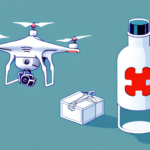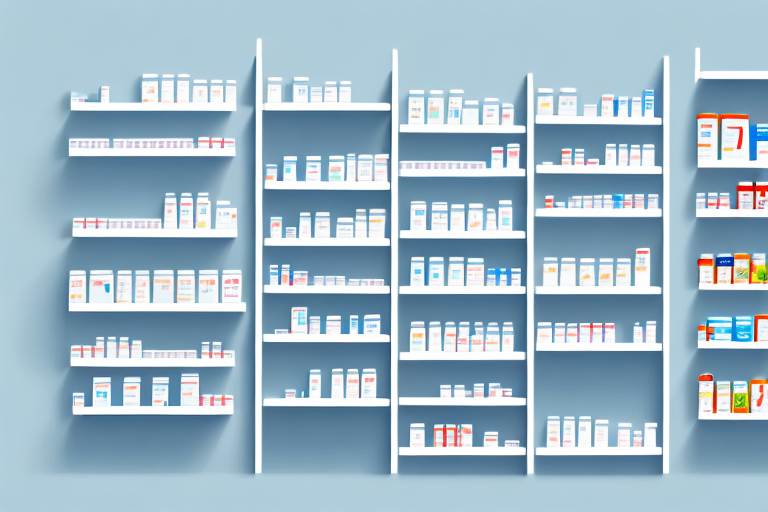Understanding Medicine Delivery Jobs in Healthcare
Medicine delivery professionals play a crucial role in the healthcare ecosystem by providing at-home medical services to patients who may have mobility issues, chronic illnesses, or other health concerns that prevent them from visiting healthcare facilities. These professionals are responsible for transporting medications, medical equipment, and other healthcare supplies directly to patients' homes, ensuring timely access to necessary treatments.
According to a U.S. Bureau of Labor Statistics report, the demand for delivery drivers, including those in the healthcare sector, is projected to grow by 7% from 2021 to 2031, reflecting the increasing reliance on at-home services.
Benefits of a Career in Medicine Delivery
Flexibility and Independence
One of the primary advantages of working as a medicine delivery driver is the flexibility it offers. Many positions allow drivers to set their own schedules, making it an ideal job for individuals seeking part-time work or those who prefer non-traditional hours.
Competitive Compensation and Advancement Opportunities
Medicine delivery jobs often come with competitive pay and opportunities for bonuses based on performance metrics such as on-time deliveries and customer satisfaction. Additionally, experienced drivers may have opportunities to advance into supervisory or training roles.
Meaningful Interaction with Patients and Healthcare Providers
Delivering medications provides a unique opportunity to interact with patients, fostering meaningful connections and contributing to their well-being. This aspect of the job can be particularly rewarding for those passionate about healthcare and customer service.
How to Start a Career in Medicine Delivery
Meeting the Necessary Requirements
To become a medicine delivery professional, candidates typically need:
- A valid driver’s license with a clean driving record
- The ability to pass a background check and drug test
- Knowledge of medical terminology and HIPAA regulations
- Reliable transportation means
Finding Job Opportunities
Job seekers can explore opportunities through various channels, including:
- Online job boards such as Indeed and LinkedIn
- Local healthcare providers and pharmacies
- Employment agencies specializing in healthcare roles
Essential Skills and Qualifications
Strong Communication and Customer Service Skills
Effective communication is vital for interacting with patients and healthcare providers. Medicine delivery drivers must be able to convey information clearly and courteously, ensuring patient needs are met.
Time Management and Organizational Skills
Delivering medications within specified timeframes requires excellent time management. Drivers must efficiently plan their routes and prioritize deliveries to meet deadlines.
Knowledge of Medical Safety and Handling
Understanding how to handle different types of medications and medical equipment safely is essential to prevent contamination and ensure patient safety.
Working as a Medicine Delivery Driver
A Typical Day on the Job
A medicine delivery driver's day typically involves:
- Receiving delivery schedules and instructions
- Navigating to patient locations using GPS or route planning tools
- Delivering medications and supplies, ensuring accurate handoffs
- Maintaining communication with dispatch and healthcare providers
- Handling paperwork and updating delivery logs
Safety and Health Tips
To maintain safety and health while on the job, delivery drivers should:
- Conduct regular vehicle maintenance checks
- Use proper lifting techniques to handle supplies
- Stay hydrated and take regular breaks to prevent fatigue
- Follow all traffic laws and use defensive driving practices
Maximizing Earnings
Drivers can increase their earnings by:
- Working for multiple delivery platforms
- Achieving high performance ratings for bonuses
- Tracking mileage for tax deductions
Challenges and Future Outlook
Common Challenges
Medicine delivery drivers may face challenges such as:
- Navigating heavy traffic and adverse weather conditions
- Managing time-sensitive deliveries
- Ensuring the accuracy of medication deliveries
Future Growth and Trends
The future of medicine delivery is promising, with advancements in telehealth and increased demand for at-home care services driving growth. Technological innovations like route optimization software and automated delivery systems are expected to enhance efficiency and safety in the field.
Choosing the Right Employer
Comparing Companies
When selecting an employer, consider factors such as:
- Pay rates and benefits
- Flexibility in scheduling
- Company reputation and employee reviews
- Opportunities for career advancement
Advantages of On-Demand Platforms
On-demand delivery platforms offer benefits like:
- Increased earning potential through flexible work hours
- Access to a larger pool of delivery opportunities
- Support and resources such as training programs and real-time assistance
Top Qualities Employers Look For
Employers seek candidates who demonstrate:
- Reliability and punctuality
- Strong interpersonal and communication skills
- Attention to detail and accuracy
- A proactive and customer-focused attitude
Conclusion
Launching a career in medicine delivery offers a unique blend of flexibility, meaningful work, and growth opportunities within the healthcare industry. As the demand for at-home medical services continues to rise, medicine delivery professionals are becoming increasingly vital to patient care and the overall healthcare system. By acquiring the necessary skills, choosing the right employer, and staying informed about industry trends, you can build a rewarding and fulfilling career in this essential field.



















